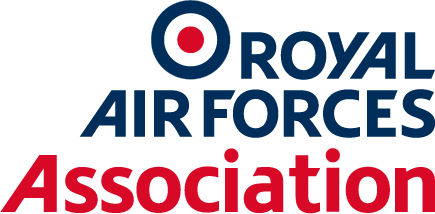Chris Thorpe on peacekeeping in Sierra Leone with the United Nations
Chris Thorpe joined the RAF in June 1983 as a University Cadet and left in November 2020 as a Wing Commander. In addition to Sierra Leone, Chris found himself on other operational detachments and on postings to the Netherlands and the USA. He continues to serve as a part time reservist, and is currently treasurer of the Association’s York Branch

Chris (seated, second left) with his multinational colleagues in Sierra Leone.
In 2005 my Desk Officer insisted on an operational deployment. “What do you know about Sierra Leone?” he asked. “Apart from a brutal civil war and a daring mission to rescue kidnapped UK soldiers, very little,” I replied. I was assured it was no longer so bad and had a chat with the person I was to replace. I then ‘volunteered’ as part of the UK’s contribution to the United Nations’ mission. My preparation involved first aid training, lessons in Sierra Leone’s history and culture and off-road driving.
I soon found myself in Freetown, the country’s capital, settling into the ‘Brit House’. As a Military Observer in a multi-national team, my role was to be the eyes and ears of the military headquarters across Sierra Leone. My first five weeks were on ‘Team 5’, based in Freetown itself, working out of the UN Headquarters in the Mammy Yoko Hotel. We patrolled the city and its outskirts daily. I remember being dispatched one day to enquire how much the Minister of Finance was paid; he had appeared in a newspaper showing off his new Range Rover and boasting about sending his two daughters to Cheltenham Ladies’ College. All of this supposedly on about £30,000 a year.
Another time we were sent to a concert to see what happened when a new band that had written songs about government corruption appeared on stage. Thankfully, it all passed off peacefully – I even bought a CD, which I still listen to! After this initial period, I was moved to Team 1 in the town of Port Loko in the north-west of the country. This was more like it! I slept in a small house with two other team members. There was no electricity or running water, so we washed in well-water we paid someone to collect every day. Team 1 was an eclectic mix of military officers from all over the world. The team leader was a Ukrainian Air Force pilot who used to fly tankers. He had supported the long-range Bear sorties into the North Sea that I had intercepted in my previous role as Fighter Controller.
I also worked with a Bolivian, Egyptian, Malaysian, Ghanaian, Bangladeshi, Pakistani and a Thai officer, among others. The UN language was English, so British and Canadian officers were keenly sought after to make reporting easier. As well as our daily patrols, we took part in civic society meetings, collected data about school attendance, spoke with medical staff about health issues – reporting our findings back to HQ. The greatest benefit of such a multi-cultural team derived from officers whose nations were more similar to Sierra Leone than mine. They understood far better than I did what poverty meant, and the priorities of the local population. I will never forget the sight of hundreds of children heading off to school in the morning. They had so little, yet were so positive and content – and immaculately turned out in their smart, clean school uniforms, chatting merrily and filling the morning with the sound of laughter.
I spent six months in Sierra Leone. It was very different from anything I had done before. I am still in contact with an orphanage in Port Loko that I continue to support. According to the UN, its deployment in Sierra Leone was one of its most successful peacekeeping missions, and I am proud to have participated in it.

School girls from the Annie Walsh secondary school on their way home in downtown Freetown, Sierra Leone. © IWM.





